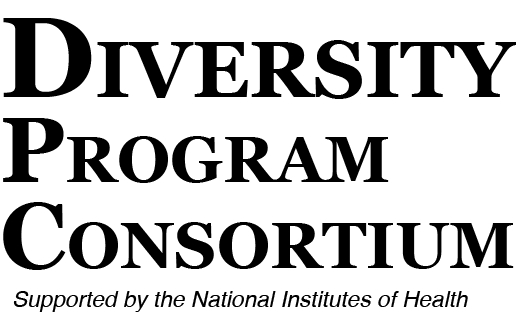



Reviews on this page include:
Imposter phenomenon is the belief that one’s successes are due to chance rather than competence, thus leading to a fear of being perceived as a fraud (Clance & Imes, 1978; Clance, 1985). The term came from early studies examining how women who had achieved external levels of success often felt like “imposters” in the workplace. Clance and colleagues (1978) observed that women often attributed their success to luck, and attributed their failure to their innate ability, whereas the opposite was more often true for men. Later research on the imposter phenomenon suggests that people of all gender identities and fields can feel like imposters. In the literature, both imposter “phenomenon” and “syndrome” are used to describe the same concept.
How is academic self-efficacy related to biomedical career outcomes? Stemming from Albert Bandura's work on self efficacy (1977) and later work on social cognitive theory (Bandura, 1991), self-efficacy was developed to explain how people think, motivate themselves, and ultimately how they behave-- including how long they will persist in the face of obstacles or challenging situations (Bandura & Adams, 1977). Defined as "a person's beliefs concerning his or her ability to successfully perform a given task or behavior" (Bandura, 1977; Betz & Hackett, 1981, p. 400), an individual's perceived self-efficacy is based on four dimensions: personal mastery experiences (i.e., experiencing successes and failures), vicarious experiences (i.e., observing others succeed such that it strengthens the belief in oneself to also be able to succeed), verbal persuasion (i.e,. feedback and encouragement from others), and emotional state (i.e., level of anxiety and stress).
Students' "sense of belonging" in college life is regarded as a critical factor in the experiences of aspiring biomedical students and their transition into college. A "sense of belonging" is generally understood as an indicator of the degree to which students feel part of their overall campus community (Bollen & Hoyle 1990). More specifically, Hagerty and colleagues (1996) define "sense of belonging" as a combination of perceived "fit" and "valued involvement." "Fit" refers to the perception that one's values or characteristics are congruent with others, and "valued involvement" refers to the perception that one is valued, needed, or important to others.
The importance of "science identity" as an influence on student persistence in the sciences is rooted in social influence research. Within this framework, science identity is linked with self-efficacy in the underlying theory that if science students perform as per their academic institution's expectations, they will be given positive feedback from the community, barriers will decrease, and they will be encouraged to continue. As a result, science students who are "successfully" socially influenced are more likely to be people who receive encouragement from their academic community members, who have high self-efficacy and who feel they can do scientific work (Estrada, Woodcock, Hernandez & Schultz, 2011).
Conducting research in a biomedical lab can expose an undergraduate student to interactions with undergraduate peers, graduate students, postdoctoral scholars, and faculty who may serve as mentors. Thus, while much of the educational research tends to focus on mentorship relationships or participation in biomedical research, mentoring relationships often occur organically through a student's engagement in biomedical research. Participation in mentored or supervised biomedical research can support the development of research knowledge and skills (Bauer & Bennett, 2003), bring clarity to the career path (Lopatto, 2007), increase the likelihood of indicating plans to enroll in a STEM graduate program (Eagan et al., 2013), and increase the competitiveness of students for other educational and career opportunities (Carpi et al., 2017).
How is self-efficacy--specifically with respect to scientific research-- related to biomedical career outcomes? Albert Bandura's theory of self-efficacy (1997) has been well-researched and has expanded to examine specific domains such as the science disciplines. Defined as "a person's beliefs concerning his or her ability to successfully perform a given task or behavior" (Bandura, 1977; Betz & Hackett, 1981, p. 400), an individual's perceived self-efficacy is based on four dimensions: personal mastery experiences (i.e. experiencing successes and failures), vicarious experiences (i.e. observing others succeed such that it strengthens belief in oneself to also succeed), verbal persuasion (i.e. feedback and encouragement from others), and emotional state (i.e. level of anxiety and stress). The theory was developed to explain how people think, motivate themselves, behave, and persist in the face of challenges and anxiety-provoking situations (Bandura & Adams, 1977). Self-efficacy is particularly vital when considering the challenges involved in conducting scientific research, the persistence required to achieve the training milestones needed to advance in a biomedical career, and the current culture of science, technology, engineering, and mathematics (STEM) that discourages (Robinson, McGee, Bentley, Houston, & Botchway, 2016) more often than motivates and encourages student growth, sometimes leading to students switching into non-science majors and career aspirations (Seymour & Hewitt, 1997).
The practice of mentoring new scientists along their career paths has been integral to cultivating the scientific workforce. In an effort to address the gap between research on effective mentorship and how mentorship is practiced in science, technology, engineering, and math (STEM) disciplines at colleges and universities, the National Academies of Sciences, Engineering, and Medicine (NASEM) developed a report to summarize what is known about effective mentoring relationships, particularly for STEMM1 disciplines (NASEM, 2019). While the report affirms the importance of mentorship and provides recommendations based on current mentorship research, there is still much to learn about the role of trainees? perceptions of mentorship, and to what extent satisfaction with the quality of mentorship matters in comparison to other aspects of mentorship, such as the quantity of mentors or a specific mentoring structure (Eby et al., 2013)
Since the 70s, the proportion of whites and Underrepresented Groups (URGs) interested in the STEM (Science, Technology, Engineering, and Math) field has converged; URG students' completion rates, however, have continuously fallen behind (Rask, 2010). An URG student can face substantial difficulties when attempting to complete their STEM degree. This phenomenon led researchers to focus their attention on student attainment and attrition rate to STEM majors. Findings have shown that a student?s experience while completing the introductory college math and science courses, in combination with the student's engagement with their professors and in the classroom, are important factors in the choice to pursue and complete a STEM major (Daempfle, 2002; Dai & Cromley, 2014; Gasiewski, Eagan, Garcia, Hurtado, & Chang, 2012; Rask, 2010). As we are witnessing more students interested in the STEM field, improving the quality and quantity of the gatekeeper courses becomes essential.
While there are numerous definitions of mentoring, it is often described as an extended relationship with a more senior individual who has knowledge and/or experience that can be used for career success by a more junior individual. Unlike teaching, which has a well developed set of skills and approaches that have been systematically studied, mentoring tends to rely on the highly individualized practices of mentors which are only now being systematically studied for effectiveness (NASEM, 2019).
Social integration in higher education has been defined as the students' degree of social and psychological comfort with their campus environments, association with or acceptance by affinity groups, and a sense of belonging that provides the security to join with others in common causes, whether intellectual or social (Braxton, 2000). Sense of belonging, defined as a student?s subjective sense of "fitting in" (Spady, 1970; Hurtado & Carter, 1997) is one is one aspect of social integration that focuses on the psychological dimension of integration. Perceived sense of belonging within the university (STU-5), as well as within the research community (STU-6), are two of the student-focused hallmarks of the Diversity Program Consortium (DPC).